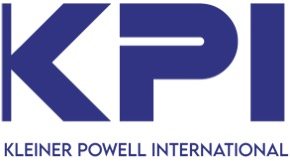Newsletter
Highlights:
Apple unveils AI-powered utilities for iOS 18, iPadOS 18, and macOS Sequoia.
Pope Francis will make an appearance at the G7 summit to discuss AI ethics.
OpenAI partners with Oracle to increase their compute capacity and continue to scale.
Credits to Apple
Business
Introducing Apple Intelligence (Apple)
On Monday, Apple unveiled Apple Intelligence, the integration of genAI into iOS 18, iPadOS 18, and macOS Sequoia. Apple Intelligence covers a variety of functions such as writing tools, placing priority mail and notifications at the top, suggesting generated replies, image generation and editing, improved Siri, and ChatGPT integration. “Apple Intelligence will transform what users can do with our products — and what our products can do for our users,” said Tim Cook, Apple’s CEO. He also believes that using AI to expedite tasks will help decrease screentime for users.
Broadcom Shares Surge After AI Computing Demand Fuels Growth (Yahoo!Finance)
Broadcom is a chip supplier for Apple and other big tech companies. Like other semiconductor companies, the artificial intelligence race has led to a boom in their recent profits. Broadcom’s second-quarter profit was $10.96 a share according to a company statement on Wednesday. Chief Executive Officer Hock Tan predicts that total AI sales for fiscal 2024 will be more than $11 billion.
US business owners seek higher insurance coverage as AI, election risks loom, survey shows (Reuters)
Gallagher, an insurance brokerage, conducted a survey with 1,000 American business owners and found that the top two biggest causes of concerns to businesses are extreme weather conditions and cyber attacks. J. Patrick Gallagher, the Chairman and CEO of the insurance brokerage, stated "Businesses need to be familiar with regulatory risks and potential liability related to copyright infringement, data bias and intellectual property," and should be “conducting risk assessments with compliance, privacy and cybersecurity in mind,” in regards to the growing adoption of AI.
Credits to Alessandra Tarantino/POOL/AFP via Getty Images
Politics
Why G7 leaders are turning to a special guest — Pope Francis — for advice on AI (NPR)
This year’s G7 summit will be the first to feature a pope as an invited participant. Pope Francis has spoken openly before about developing AI for the good of humanity. Several years ago, the Vatican and tech companies like Microsoft started working together on a set of prinicples known as the Rome Call for AI Ethics. Pope Francis is expected to focus on ethics in his remarks at the G7, particularly how AI could be used to help the poor and protect the environment.
Technology
Samsung unveils plan to speed up delivery of AI chips (CNN)
AI chips usually take weeks to produce, but Samsung’s recent changes could cut that by around 20%. Their contract manufacturing business plans to offer a one-stop shop to clients, combining memory chips, foundry and chip packaging teams into a single line of communication. Samsung also announced its latest 2-nanometer chipmaking process for high-performance computing chips.
OpenAI to use Oracle’s chips for more AI compute (The Verge)
OpenAI, Microsoft, and Oracle announced a partnership this week that would allow OpenAI to use Microsoft’s Azure AI platform on Oracle’s infrastructure to increase their compute capacity. Oracle’s chips will supposedly “enable OpenAI to continue to scale,” in order to keep up with demand and prevent future ChatGPT outages.
Science
AI discovers new rare-earth-free magnet at 200 times the speed of man (New Atlas)
Permanent magnet motors are a component found in robotics, drones, automobiles, wind turbines, and HVAC equipment. It’s an exceptionally in-demand part with a difficult creation process. The rare earth materials used to create the most powerful magnets require damaging mining and expensive, energy-intensive processing. Materials Nexus, a UK deep-tech company, is working on providing an alternative - rare-earth-free magnets. By substituting AI for old-fashioned trial-and-error, Materials Nexus believes that they can identify and develop these magnets at a pace hundreds of times faster than was possible before. In fact, they’ve already done so with their first rare-earth-free permanent magnet named MagNex.
Credits to Robert LoCascio
Life
He has cancer — so he made an AI version of himself for his wife after he dies (NPR)
Michael Bommer was diagnosed a couple of years ago with terminal colon cancer. In his last few weeks to live, he was contacted by a friend from Eternos.Life to build an interactive AI version of himself. Normally AI can access all sorts of knowledge, but his wife wanted it to be able to answer questions only he would know and recall memories of their time together. Bommer recorded 300 specific sentences for vocal programming and told 150 stories about his life. Bommer views his AI as a digital memoir, merely a tool to pass on his experiences and knowledge to the next generation, while also providing comfort to those left behind.






